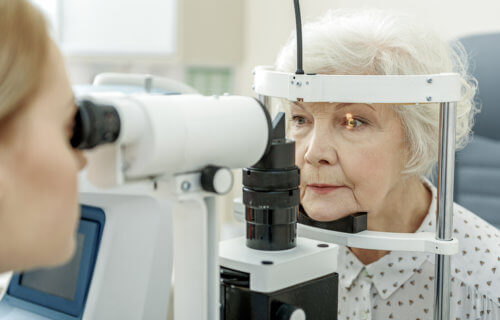BETHESDA, Md. — The most common cause of blindness in older Americans is age-related macular degeneration (AMD). However, there is hope that people can slow the progression of vision loss down. Researchers with the National Eye Institute analyzed 10 years’ worth of data and found that a modified version of the AREDS2 formula, which contains the antioxidants lutein and zeaxanthin, was effective in slowing down AMD progression.
“Because beta-carotene increased the risk of lung cancer for current smokers in two NIH-supported studies, our goal with AREDS2 was to create an equally effective supplement formula that could be used by anyone, whether or not they smoke,” explains lead study author Emily Chew, MD, director of the Division of Epidemiology and Clinical Application at the National Eye Institute, in a media release. “This 10-year data confirms that not only is the new formula safer, it’s actually better at slowing AMD progression.”
What is macular degeneration?
AMD is a degenerative eye disease. It centers around the deterioration of the retina, a tissue in the back of your eye that detects and captures light. As someone develops AMD, the retinal cells in the macula, the part of the retina involved in clear central vision, begin to die. After a significant amount of retinal cell death, a person begins to experience blindness. There are treatments available to delay or reverse vision loss, but there is no cure for AMD.
The original study involving the AREDS formula took place in 1996. Researchers at the time devised a dietary supplement containing 500 mg vitamin C, 400 international units of vitamin E, 2 mg of copper, 80 mg of zinc, and 15 mg of beta-carotene.
They tested the dietary supplement on people at risk for AMD to see if it could slow the progression from moderate to late disease. While effective, two later studies noted concerns over the use of beta-carotene. For smokers and those using the formula containing beta-carotene, there was an elevated risk of lung cancer.
A second trial took place in 2006. AREDS2 involved substituting the beta-carotene with 10 mg of lutein and 2 mg of zeaxanthin. Both lutein and zeaxanthin are antioxidants that boost retinal activity. The team selected people to receive either formulation and tested its safety and effectiveness in slowing down the progression of AMD. Although for safety reasons, only non-smokers or who people who quit smoking took the beta-carotene AREDS formula. The study went on for five years.
After that time, the researchers found that swapping beta-carotene for lutein and zeaxanthin did not raise a person’s lung cancer risk. Additionally, the new formula for the dietary supplement reduced AMD risk of progression by 26 percent.
AREDS2 reduces late-stage AMD risk
The new study, reported by NIH researchers, was a follow-up of the 2006 AREDS2 trial. They followed up with 3,883 of the original 4,203 participants for another five years to see how their AMD progressed and if they developed lung cancer.
All of the participants had switched to the modified formula by the end of the study. For people who took the beta-carotene formulation and had a history of smoking, their risk of lung cancer doubled. Fortunately, those on the modified supplement with lutein and zeaxanthin showed no increased lung cancer risk. There was also an additional 20 percent reduction in the risk of progression to late-stage AMD compared to participants who originally took the beta-carotene formula.
“These results confirmed that switching our formula from beta-carotene to lutein and zeaxanthin was the right choice,” concludes Dr. Chew.
The study is published in JAMA Ophthalmology.
